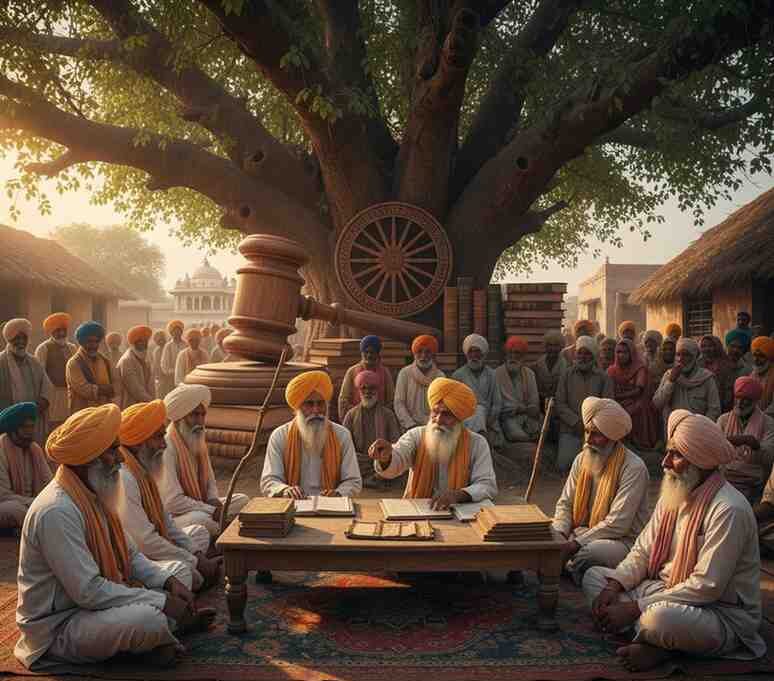Khap Chiefs Call for Rollback of Live-in Relationship Protections and LGBTQ Rights: A Detailed Breakdown: Khap Panchayats—traditional community councils active primarily in rural regions of North India—have once again entered the national spotlight. At the Sarv Khap Sarv Jati Sammelan, held in Shoram village of Muzaffarnagar, Uttar Pradesh, khap leaders from five states passed a controversial resolution demanding the withdrawal of legal protections for live-in couples and LGBTQ individuals.
The development brings into sharp focus the ongoing clash between India’s constitutional guarantees of individual freedom and long-standing patriarchal social structures that still dominate several rural pockets of the country.
What the Khap Resolution Stated
The three-day mahapanchayat hosted chiefs from Uttar Pradesh, Haryana, Rajasthan, Delhi, and Uttarakhand. The leaders passed an 11-point resolution aimed at “preserving traditional Indian values,” with several demands that challenge progressive legal reforms.
Rollback of Live-in Relationship Protections
The gathering made a strong appeal to undo the judicial safeguards extended to partners living together without marriage. Khaps described live-in relationships as harmful to societal order and argued that they undermine marriage as an institution.
Opposition to LGBTQ Rights
The resolution explicitly rejected recognition of LGBTQ relationships. It demanded the reversal of rights that allow same-sex couples to cohabit or seek legal protection, asserting that only heterosexual marriage should be considered a legitimate family structure.
Tighter Restrictions on Love Marriages
One of the most debated demands was the call for amendments to Hindu laws so that a love marriage becomes valid only if parents give their consent. Some leaders went so far as to argue that court marriages conducted without family approval should not be legally recognized.
Additional Social Reform Proposals
Alongside these controversial demands, the khaps also passed resolutions on:
- Tougher action against dowry practices
- Banning lavish feasts after funeral rites
- Campaigns promoting girls’ education
- Measures to curb drug addiction in rural communities
All resolutions were adopted unanimously, and khap leaders announced that they would submit their proposals to the government with the hope of influencing national debate.
How These Demands Interact With Existing Indian Law
The khap proposals directly challenge a range of judicial rulings and statutory protections that uphold the rights of consenting adults.
Legal Protections for Live-in Couples
India does not have a specific law regulating live-in relationships, but courts have provided recognition in several areas:
- Protection under the Domestic Violence Act, 2005: Women in long-term live-in relationships can seek maintenance and protection from abuse.
- Legitimacy of Children: Children born from live-in relationships are treated as legitimate for inheritance purposes.
- Right to Life and Liberty: Courts have frequently directed police to protect live-in couples from harassment by families or community groups.
LGBTQ Rights in India
India’s LGBTQ community has gained significant constitutional protections through landmark judgments:
- Navtej Singh Johar (2018): Decriminalized consensual homosexual relationships by reading down Section 377 of the IPC.
- Right to Choose a Partner: Courts have held that LGBTQ persons have the same freedom as anyone else to select a partner and live with them without state interference.
- NALSA Judgment (2014): Recognized transgender persons as a third gender and affirmed rights relating to gender identity, dignity, and social inclusion.
Frequently Asked Questions
What is a Khap Panchayat?
Khap Panchayats are informal community councils found mainly in states like Haryana and western Uttar Pradesh. Rooted in clan-based systems, they traditionally regulate marriage norms, caste boundaries, and social conduct. Their decisions may influence local communities, but they have no legal authority under India’s Constitution.
Are Khap resolutions legally binding?
No. Courts—including the Supreme Court—have repeatedly stated that khap panchayats cannot interfere with the personal freedoms of adults. Any attempt by them to punish, threaten, or coerce individuals is illegal.
How do these demands conflict with fundamental rights?
The khap proposals contradict key constitutional guarantees, such as:
Article 21: Right to life and personal liberty, including choice of partner
Article 14: Right to equality before the law
Article 19: Freedom of expression and autonomy in personal matters
The Supreme Court has consistently held that adults have full freedom to decide whom they wish to live with or marry.
What is the Sarv Khap Sarv Jati Sammelan
It is a large gathering of multiple khaps and caste groups across North India. The sammelan is used to adopt resolutions that represent the collective viewpoint of these traditional bodies, often influencing social attitudes within the regions where khaps hold significant sway.

























